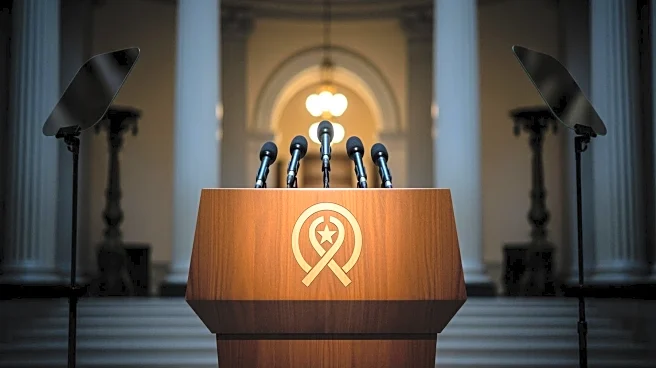What's Happening?
The Supreme Court is currently hearing arguments in a significant redistricting case from Louisiana, which centers on Section 2 of the Voting Rights Act. This section is crucial as it prohibits voting
practices or procedures that discriminate based on race, color, or membership in a language minority group. Derrick Johnson, President of the NAACP, has been vocal about the potential impacts of this case, emphasizing its importance in maintaining fair representation for minority communities. The case could have far-reaching implications for how districts are drawn and how minority votes are protected across the United States.
Why It's Important?
The outcome of this Supreme Court case could significantly affect the political landscape in the U.S., particularly in states with large minority populations. If the court rules in a way that weakens Section 2 of the Voting Rights Act, it could lead to increased gerrymandering, where district lines are drawn to favor one party over another, often at the expense of minority representation. This could diminish the political power of minority communities and alter the balance of power in Congress and state legislatures. The NAACP and other civil rights organizations are closely monitoring the case, as it could set a precedent for future redistricting efforts.
What's Next?
As the Supreme Court deliberates, stakeholders including civil rights groups, political parties, and state governments are preparing for potential outcomes. If the court decides to uphold the current interpretation of Section 2, it would reinforce protections against discriminatory redistricting. However, if the court rules to weaken these protections, it could prompt legislative efforts to restore or strengthen voting rights at the federal level. Additionally, states may need to reassess their redistricting processes to ensure compliance with any new legal standards set by the court.
Beyond the Headlines
This case highlights ongoing debates about voting rights and racial equality in the U.S. It underscores the tension between state control over electoral processes and federal oversight to prevent discrimination. The decision could influence public discourse on race, representation, and democracy, potentially sparking renewed activism and advocacy for voting rights reform.










